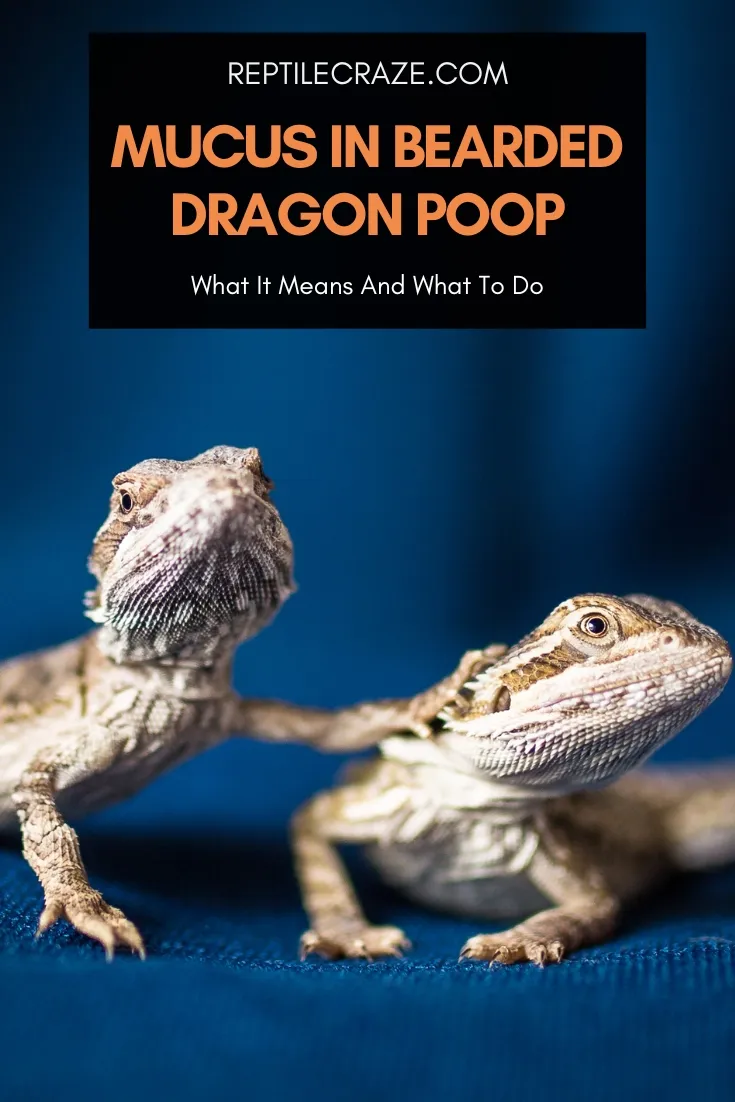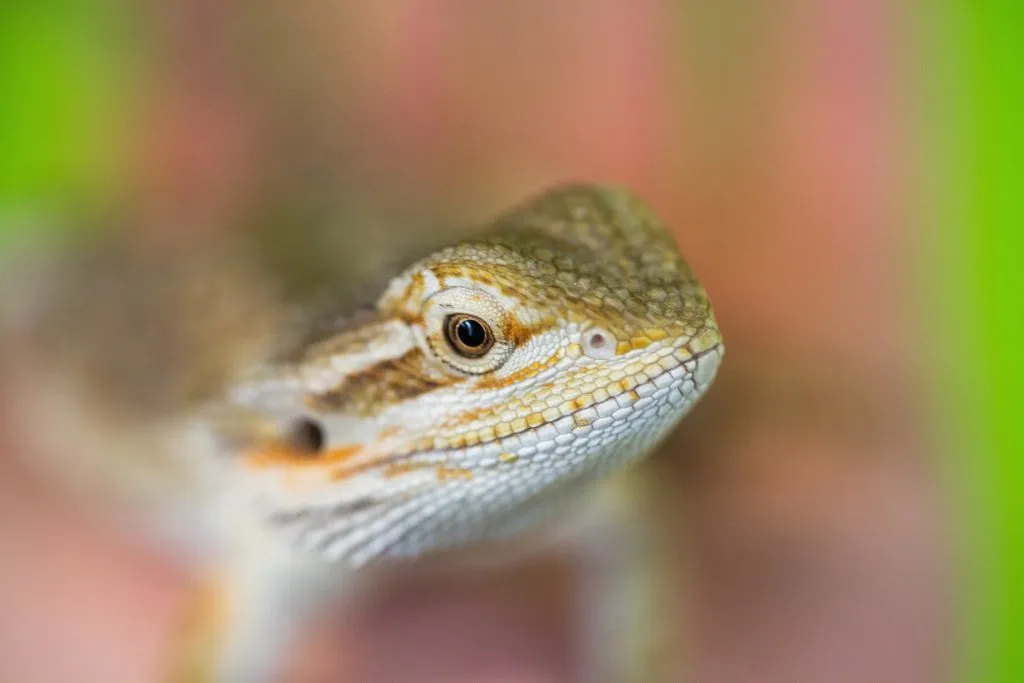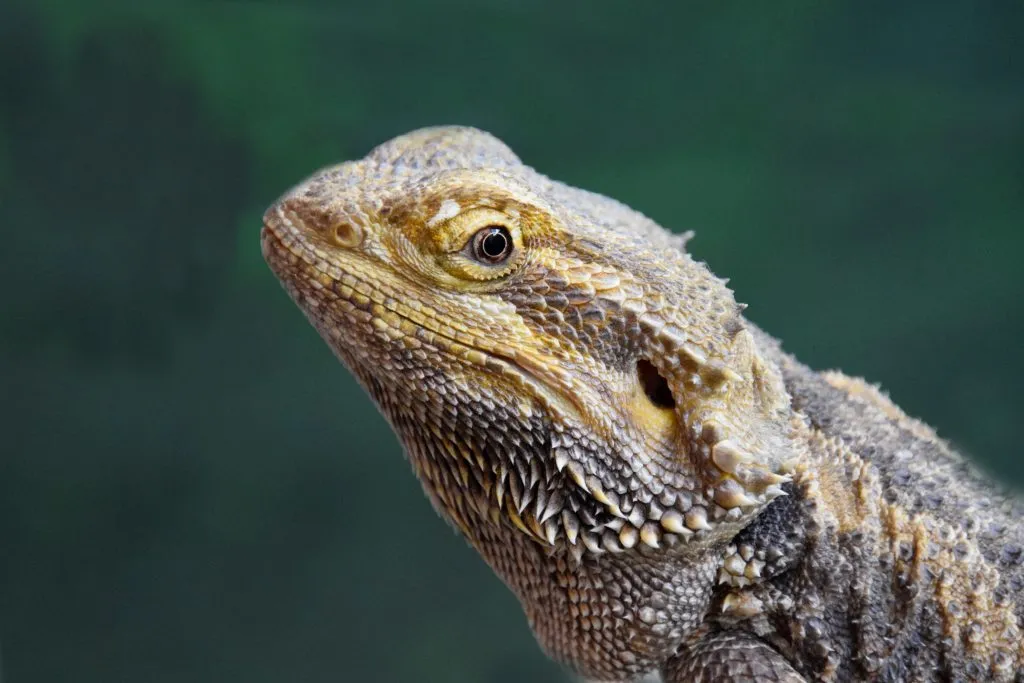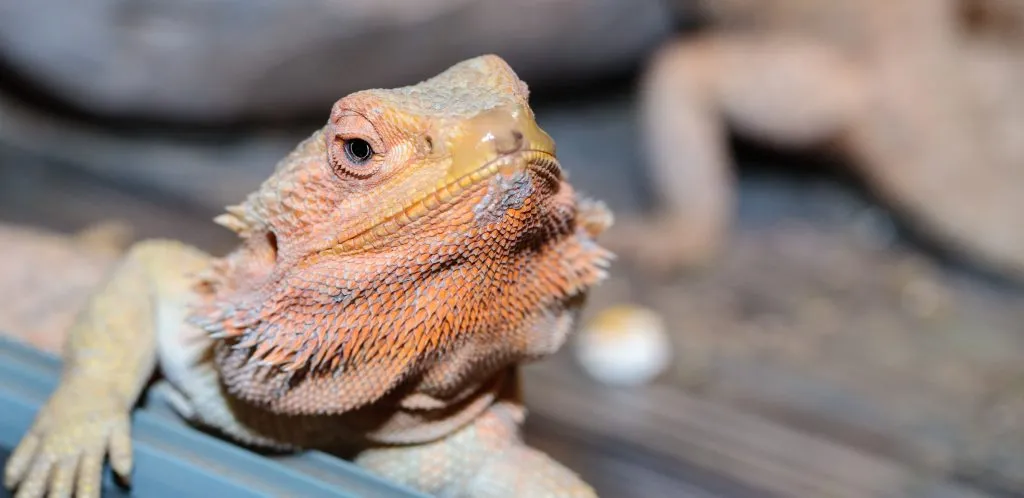
Mucus in a bearded dragon’s poop is almost never good news. It’s a problem easily overlooked, when in fact it’s an indicator of some serious underlying illnesses.
Bearded dragons with mucus in their feces could be suffering from intestinal parasites, digestive issues due to inadequate temperatures, or a possible blockage in the digestive tract. While some measures can be taken at home, a visit to the vet is almost always necessary in this case.
This post will go into detail about every possible reason a beardie might have mucus in its poop, and steps you should take to deal with the situation. Read on!
Table of Contents
Reasons Why Bearded Dragons Have Mucus in Their Poop
Bearded dragons with mucousy poops will have slimy, jelly-like stuff covering their poop or form a part of the poop. The mucus can sometimes be colorless or have a yellowish, green, or gray tint to it. Here’s why it happens:
Parasites
The most common culprit behind slimy poops in beardies is intestinal parasites. They usually infect reptiles through the insects they eat, multiplying in the intestinal tract and disrupting the digestive process.
Among protozoan parasites, coccidia and giardia are the most common organisms that usually result in mucus-coated, runny poops.
If not treated in time, the infection can escalate into weight loss, regurgitation, extreme lethargy, and eventually death.
Cleanliness of the enclosure and the reptile’s contact with the outside environment are two factors to consider when preventing parasitic infections. (Source).
Indigestion

Your beardie may have mucus in its poop because of poorly digested food. Finding partially digested or fully intact insects in the poop are usually a sign of indigestion.
This happens when the temperature is not within the optimum range or there’s a lack of a proper basking spot or cooler areas in the
Indigestion can also occur when bearded dragons eat too much
Swallowing Substrate
Having loose substrate in a bearded dragon’s
Swallowing loose substrate can irritate the intestinal lining, not just because it’s a foreign object but also because it’s almost always carrying a lot of bacteria.
This causes digestive issues that include mucus in the poop. You might find blood and bits of the substrate in the poop as well if your beardie has swallowed it, and needless to say, this requires an emergency visit to the vet.
It’s best to have a clumped-up mixture of reptile-safe clay and organic soil as substrate to mimic a bearded dragon’s natural habitat while ensuring safety. Meanwhile, paper towels are great for baby dragons or quarantine tanks.
Impaction
Impaction is a potentially fatal condition that happens when there’s a blockage in the digestive tract, preventing the poop from passing on.
If your dragon is only pooping mucus or small amounts of runny stuff, there’s a chance there’s something partially blocking the way inside, which is why only liquids can find their way out.
Impaction can occur for various reasons – swallowing substrate, consuming insects that are too big, constipation, and so on.
If your bearded dragon isn’t pooping, we highly reading our article on that here! It will show you what you should do now.
Amebiasis

A deadly disease that’s not talked about enough is amebiasis, caused by Entamoeba invadens in reptiles.
It is spread mostly through contaminated
Bearded dragons kept in unhygienic conditions where cross-contamination from one reptile to another happens are most susceptible to this infection, and treating it in time is key to their survival.
Hydration
A small amount of clear and runny mucus coating the poop is normal for some dragons – in fact, it may be considered healthy! It indicates that your beardie is well-hydrated and the poops are soft and easy to pass out.
This is especially the case if you’ve been feeding your pet lots of juicy veggies. Keeping track of what its poop usually looks like can help differentiate when it becomes unusually mucousy.
What to Do If Bearded Dragons Have Mucus in Poop
Bearded dragons with mucus in their poop may not show obvious signs of being ill. Here are the next steps to assess the situation and help your pet:
Get Fecal Exams
Since slimy poops very often indicate internal parasites, getting a fecal exam done for your dragon should be your priority. This should especially be the case if the poop also smells exceptionally foul.
Get a fresh sample in a Ziploc bag and drop it by a vet the first chance you get, because most intestinal parasites require a timely diagnosis for successful treatment.
You may have to get more than one test done – some parasites can’t be detected so easily.
If the fecal exam has ruled out parasites, you can take a sigh of relief and focus on perfecting its diet and the parameters of its enclosure.
Hydrate
In the meanwhile, you might want to rehydrate your pet, especially if it has diarrhea. Try placing it in a shallow tub of water to encourage drinking water on its own, or use a syringe.
Check the Enclosure and Diet

The next step is to ensure your beardie is within optimum surroundings. A low temperature within the enclosure results in digestive issues, and so does the lack of a basking spot with inadequate UVB exposure.
As for the diet, an adult bearded dragon’s
Refer to our detailed article on bearded dragon care, which contains information on temperature ranges, diet, and
tank setup.
Fix any errors within the diet and setup immediately and see whether it helps your beardie feel better in the upcoming days.
Try Baths
Giving your bearded dragon a bath might help in case it’s constipated or if you suspect impaction. It gets things moving inside and might relieve your pet for the time being.
If mucus in the poop persists despite everything, visit a vet ASAP who will be able to prescribe an appropriate treatment plan.
Final Thoughts
We highly suggest visiting a vet if your beardie has persistent mucus in its poops, as parasites slowly harm your pet without any obvious symptoms, while other issues like impaction are more urgent.
- Enchi Ball Python: A Unique and Stunning Morph of Python regius - March 27, 2025
- Emerald Tree Monitor: The Enigmatic Green Guardian of the Rainforest - March 26, 2025
- The Egyptian Cobra (Naja haje): A Fascinating Serpent - March 25, 2025
